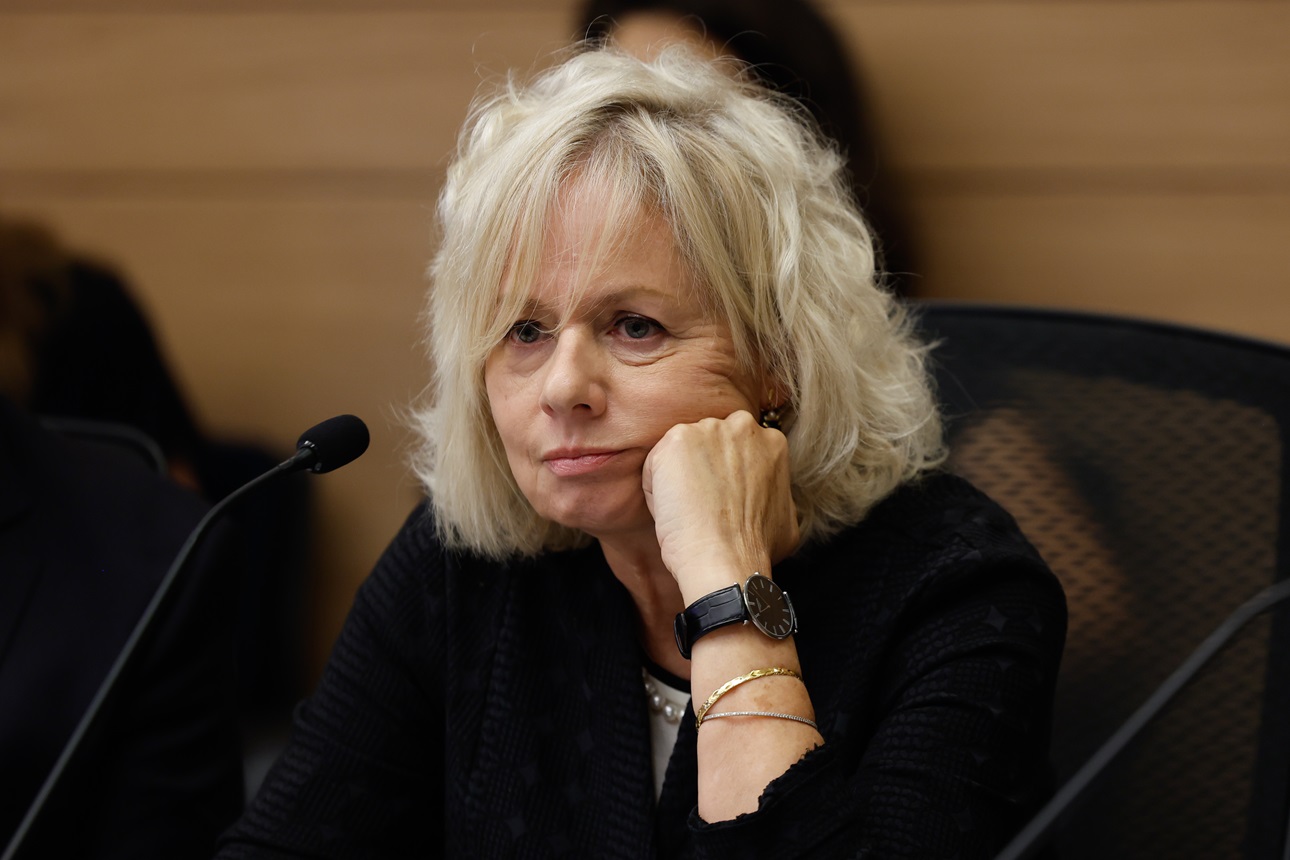Explainer: The Proposals to “Split” the Role of the Attorney General
Against the backdrop of the bills currently under consideration in the Knesset, which are intended to split the role of the Attorney General, IDI experts explain what is at stake.

Photo by Oren Ben Hakoon/Flash90
Israel's Attorney General has several important roles including: heading the criminal prosecution, representing the state and the public interest in court, and providing legal counsel to the governing authorities as the authorized interpreter of the law. The independent role of the Attorney General in enforcing the rule of law is seen as particularly vital in light of the structure of Israel’s governmental system. For more details about the AG’s roles and their importance, see here.
Nine different bills are currently being discussed in the Knesset, based on three different models of splitting the role.
- Transferring the Attorney General’s powers to the State Attorney for managing criminal proceedings against the Prime Minister, a minister, or a Knesset member. In some proposals, the State Attorney’s decisions in this area would require approval by a new senior-officials committee to be established.
- Transferring all powers of the Attorney General as head of the criminal prosecution to a Prosecutor General. Under this model, the prosecutor general would be appointed by the Minister of Justice with the approval of the Knesset’s Constitution, Law and Justice Committee, and would head a new criminal prosecution system to be established.
- Splitting the role of the Attorney General into three different positions, with detailed regulation of their duties and status in a manner different from today. For example, this is done by proposing to determine their appointment and removal through political processes, through weakening the status of their legal opinions, and canceling the Attorney General’s exclusive authority to decide whether the government may obtain separate representation.
At a meeting of the Knesset Constitution Law and Justice Committee on the bills, MK Simcha Rothman, the committee chair, clarified that the third model –his own proposal –would serve as an “introduction to the discussion” because it is the proposal that addresses the most detailed aspects of all the issues.
Splitting the Attorney General’s role is a complex issue that has been debated for many years. Among the reasons proponents have cited for splitting the position are concerns about excessive concentration of powers and excessive workload for the office of the AG. Other concerns debate the conflicts of interest or the appearance of conflicts of interest between prosecuting elected officials in the executive branch and providing legal advice to that same branch. However, the inherent risks in splitting the role are real and consequential, specifically weakening the independence of the Attorney General and the prosecution system and paving the way for initiatives intended to politicization of these institutions. Considering that the most recent public commission to address the issue (the Shamgar Commission, 1998) recommended not to split the role, the matter should be considered carefully and not advanced in a hasty manner. If it is to be considered, it should be done through an orderly, professional, and structured process.
At present, advancing these bills while the Prime Minister is on trial and facing criminal proceedings is contrary to the conflict-of-interest arrangement applicable to the Prime Minister that does not allow him to deal with issues relating to the Attorney General. In addition, it appears that the legislation is intended to effectively remove the current Attorney General from office, in order to bypass the obstacles posed by the legally prescribed removal procedures and by Supreme Court decisions that halted those attempts due to flawed judgment by the government, a defective process, and lack of legal grounds.
In truth, this is not a "split" of the Attorney General’s role, but a far more sweeping move. The bill according to the third model, which the Constitution Committee chair proposed as the basis for discussion, aims to weaken the new officeholders who would replace the Attorney General. In many ways, this would impair their ability to fulfill their constitutional function. This would be done through various means including: establishing appointment and removal processes that undermine their independence; weakening the legal force of the Attorney General’s legal opinions compared to their current status; canceling the Attorney General’s exclusive authority to decide whether the government may obtain separate representation; and more.
In doing so, this bill would harm the independence of the law-enforcement system, strengthen the government, and remove checks on its power in a way that would fundamentally destabilize Israeli democracy and its protection of the rule of law and human rights.
